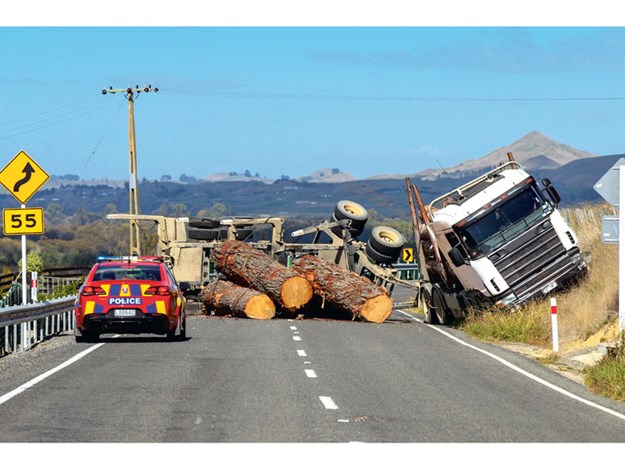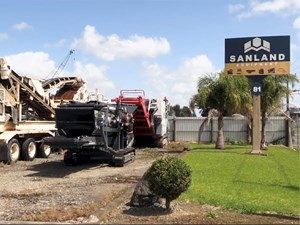Comment: Learning the key to rollovers
LTSC has stepped up to take leadership in truck rollovers and has been collecting information around incidents from the regions for the last 12 months

Truck rollovers are a significant risk in log cartage sector, and it’s not new, but if we keep doing the same without change, we’re not doing anyone any favours. Rollovers have killed drivers and are a potential risk to other road users, take the assets off the road for a long period of time, while impacting capacity and production time.
The forestry sector has been leaders in vehicle stability and often the initiatives can be adopted by other transport sectors, improving the environment for others. LTSC has stepped up to take leadership again in truck rollovers and has been collecting information around incidents from the regions for the last 12 months with a new initiative, ‘Roll Call’, in the hopes to increase the database around these incidents.
Recently, the e-mail reminder to feed into this system was extended but is still struggling to capture an accurate record. There seems to be a real reluctance to report, but the investigated learnings from the incidents will save lives if we can gather a quantum of statistics and insights.
It’s important that we take these reported incidents to ascertain whether it might have been driver error, issues with the infrastructure or the equipment. The more incidents we can review, the greater the opportunities to get to the real reasons and the more focused our research around finding better solutions will give greater outputs.
There’s now a project on the go around providing the driver in the cab an audible and visual alarm warning that their trailer stability is beyond a threshold so they can react in time to reduce the risk of a rollover event.
This will also assist the driver in their driving behaviours and provide real-time feedback on how their driving affects the entire unit and enables them to adjust their behaviour to avoid alarm triggers in future, in turn, creating a safer driver.
It’s hoping to develop an electronic signal from a trailer system such as WABCO and convert this signal into a warning system inside the cab. Funding through FGLT has been a good kick start to this project led by Pan Pac, Hawke’s Bay.
It’s important to understand that we don’t want to act post-injury or death incidents to make changes for improvement, as when that happens, it’s too late. There’s also the IRIS incident system that can be used but for what we need to know and can improve for the safety of our drivers, the industry needs to step up and make this information available without fear they are going get into trouble.
Find new and used heavy machinery for sale in NZ
Keep up to date in the industry by signing up to Deals on Wheels' free newsletter or liking us on Facebook.





.jpg)


.jpg)


.jpg)


.jpg)
.jpg)

